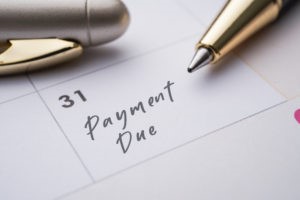At face value, working with cash buyers should be easy and simple. Cash, As-Is, no appraisals….easy! Unfortunately, this is not always the case and working with cash buyers can be difficult. The good news is, knowing what to look out for when working with cash buyers BEFORE opening escrow can prepare you to save you time, frustration, and hair-pulling! Over the years, we’ve seen competing cash buyers include certain terms in their offers that should be seen as red flags and/or warning signs. Whether you’re thinking of selling your own property to a cash buyer or you’re listing a property for a client that is attracting cash buyers, keeping a keen eye out for the Red Flags below could help avoid choosing the wrong buyer!
Knowing why investors include these terms in their offers and how to counter them will put you in a much stronger position in the transaction and simplify the process of selling your home for cash.
- The “Non-Contingent” Offer
What exactly is a non-contingent offer? When a buyer submits a “Non-Contingent” offer, they are essentially forfeiting any and all of their privileges to perform due diligence on a property they’re interested in. I.e., they’re giving up the right to….
- perform further inspections
- review seller’s disclosures
- confirm clean ownership with a title report
- complete a final walkthrough….
….in addition to plenty of other protections that are standard in a purchase contract.
We see it in competing offers all the time. Companies that buy houses for cash say they’re non-contingent and that they “don’t need an inspection period”. Often times their goal here is to make their offer appear as strong as possible and get their offer accepted. Unless you’ve seen the tactic before and know how to prevent it, buyers may take advantage of their Earnest Money period to complete their due diligence. They know that once their offer is accepted, they likely have the industry standard 72 hours to submit their Earnest Money Deposit and can use these 72 hours to do their initial walkthrough of the property, perform inspections, etc. If they find something they don’t like or realize the numbers don’t make sense after physically walking through the property they can cancel their offer or try and re-negotiate by asking for a price reduction. All this happens before any of their money has been submitted to escrow!
Pro tip: Write up a Seller counter! Shorten the earnest money period to 24 hours or sooner and make it clear that no further inspections will be allowed until escrow receives buyer’s nonrefundable Earnest Money!
- Long (Unnecessary) Inspection Periods
While a typical financed buyer typically gets about 17 days to perform their due diligence on a property, cash buyers should be writing in a much shorter time period into their contracts.
How much time does a cash buyer need to perform inspections? It’s a loaded question, and depends on a couple things….
- the complexity of the renovation
- necessity of additional inspections (I.e., Foundation, soils report, zoning/planning research, etc.)
The more complex a project, the more time a buyer may need to perform due diligence. With that said, a cash buyer SHOULD be able to complete their inspections on an average house of average size (up to 2,500 square feet) in 3-4 days. Some investors may be able to work faster while others may rightly need more time to perform additional due diligence. BUT – digging deeper into the buyer’s plans is HIGHLY encouraged if they’re asking for 8+ days to perform due diligence for a basic home. They may be trying to give themselves as much time as possible to farm out to other buyers!
PRO TIP: Write up a Seller counter! You can always counter inspection days to whatever timeline you feel fair!
- Low Earnest Money Deposit
Any savvy seller should want their buyer to have “Skin in the game” i.e., something to lose if the buyer does not perform to the contract. This typically comes in Earnest Money Deposit which is usually expected to be submitted to Escrow within 72 hours of offer acceptance. Should the buyer cancel their offer or not perform per the contract after removing their contingencies, escrow may be obligated to disburse those funds to the seller. The LOWER the earnest money amount, the LESS SKIN a buyer has in the game, and the LESS incentive a buyer has to perform to the contract! It’s important that the amount of the earnest money is significant enough to motivate the buyer to perform.
Things to Keep in Mind
- 1% of the purchase price is industry standard. (Earnest money on a $600,000 purchase contract should be at least$6,000)
- Anything below that, consider countering it up!!
Remember: If a buyer can’t submit a reasonable amount of money to escrow, how are they going to bring all the funds to close!?
- Unusually High Offers
If you’re selling a fixer property for cash in Sacramento, it’s likely that it will get a lot of attention from local investors if exposed to the local market. If the property you’re selling has multiple offers on the table, be wary of investors that are significantly higher than the average offer price of others you have in hand. Some investors knowingly come in higher than what they can actually pay for the property to tie the property up and use the contingency period to negotiate the price back down to a number they can buy it. Keep in mind that most fix and flip investors have similar way and method for running numbers and determining their offer price. If one fix and flip buyer is significantly higher than the others, something may be amiss! Dig deeper!
Pro tip: Use logic, ask questions, and see HOW an investor plans on using the property once completed. If a buyer is doing so to renovate and re-sell themselves for a profit, how do they plan on making money by paying significantly more than other competitors?
- Out of Area buyer
If you catch wind that a certain buyer submitting on your listing/property is from out of your area, proceed with caution! While by no means are all out of area investors “bad” it’s likely a safe bet that these buyers don’t know the local neighborhoods of Sacramento (or your area) as well as a local buyer would. Investor-buyers that are not from the Sacramento region likely aren’t as familiar with the market as a local buyer who has an established track record of flipping homes in the area. These types of buyers usually need to do MORE market due diligence during their contingency period to confirm their numbers and feel comfortable with the purchase. More due diligence means more uncertainty for you, and puts the transaction at a higher risk of changing their numbers mid-escrow and potentially leading to a price re-negotiation.
We hope that by knowing these tips in what to look out for when working with cash buyers, you’ll be better equipped and more prepared to facilitate an EASY escrow for top dollar!









